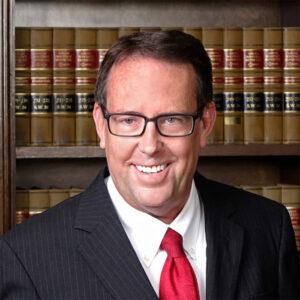Beck, Lenox & Stolzer Estate Planning and Elder Law, LLC, loves to educate its clients and the general public about the importance of having an estate plan. The attorneys are equally concerned with making sure our neighbors in St. Charles, St. Peters, and Weldon Springs know how to avoid unintended mistakes in estate planning. St. Louis, and The mistake can be as simple as signing a document without understanding its potential impact on property distribution, failing to have a last will and testament properly executed, or expecting a result different from what the will directs. Unfortunately, these unintended consequences are relatively common, says the article “Advice for avoiding unintended issues in estate planning” from The News-Enterprise.
The most common mistake that leads to unintended consequences is leaving everything to a spouse in a blended family. Even if children don’t have a close relationship with their stepparent, they’re willing to get along for the sake of their biological parent. However, when the first spouse dies, the decedent’s beneficiaries are generally disinherited if the surviving spouse receives the entire estate.
If the family truly has blended and maintains close relationships, the surviving spouse may ensure that the decedent’s children receive a fair share of the estate. However, if the relationships are tenuous at best, and the surviving spouse changes their will so their biological children receive everything, the family is likely to fracture.
Using a revocable living trust as the primary planning tool is a safer option. An experienced estate planning attorney can create the trust to allow full flexibility during the lifetime of both spouses. Upon the first spouse’s death, part of the estate is still protected for the decedent’s intended beneficiaries.
This way, the surviving spouse has full use of marital assets but can only change beneficiaries for his or her portion of the estate, protecting both the surviving spouse and the decedent’s intended beneficiaries.
Another common mistake occurs when married couples execute their last will and testaments with different beneficiaries. For example, if they’ve named each other as the primary beneficiary, only the survivor will have property to leave to loved ones.
An alternative is to decide what the couple wants to happen to the estate as a whole, then include fractional shares to all beneficiaries, not just the one spouse’s beneficiaries. This protects everyone.
Many people assume that if they die without a will, their spouse will inherit everything. Unfortunately, this is not always the case, and a local estate planning attorney will be able to explain how your state’s laws work when there is no will. Children or other family members are often entitled to a share of the estate. This may not be terrible if the family is close. However, if there are estranged relationships, it can lead to the wrong people inheriting more than you’d want.
Failing to plan in case an heir becomes disabled can cause life-altering problems. If an heir develops a disability and receives government benefits, an inheritance could make them ineligible. The problem is that we don’t know what state of health and abilities our heirs will be in when we die, and few will want their estate to be used to reimburse the state for the cost of care. A few extra provisions in a professionally prepared estate plan can result in significant savings for all concerned.
Estate planning requires thoughtful consideration of goals and potential consequences. Can every single outcome be anticipated? Not every single one, but certainly enough to be worth the effort. We invite anyone who has not received professional advice on how to create a proper estate plan, to schedule a free phone call with one of our attorneys to discuss his or her concerns and needs. You can do that by clicking here.
Reference: The News-Enterprise (March 25, 2023) “Advice for avoiding unintended issues in estate planning”










